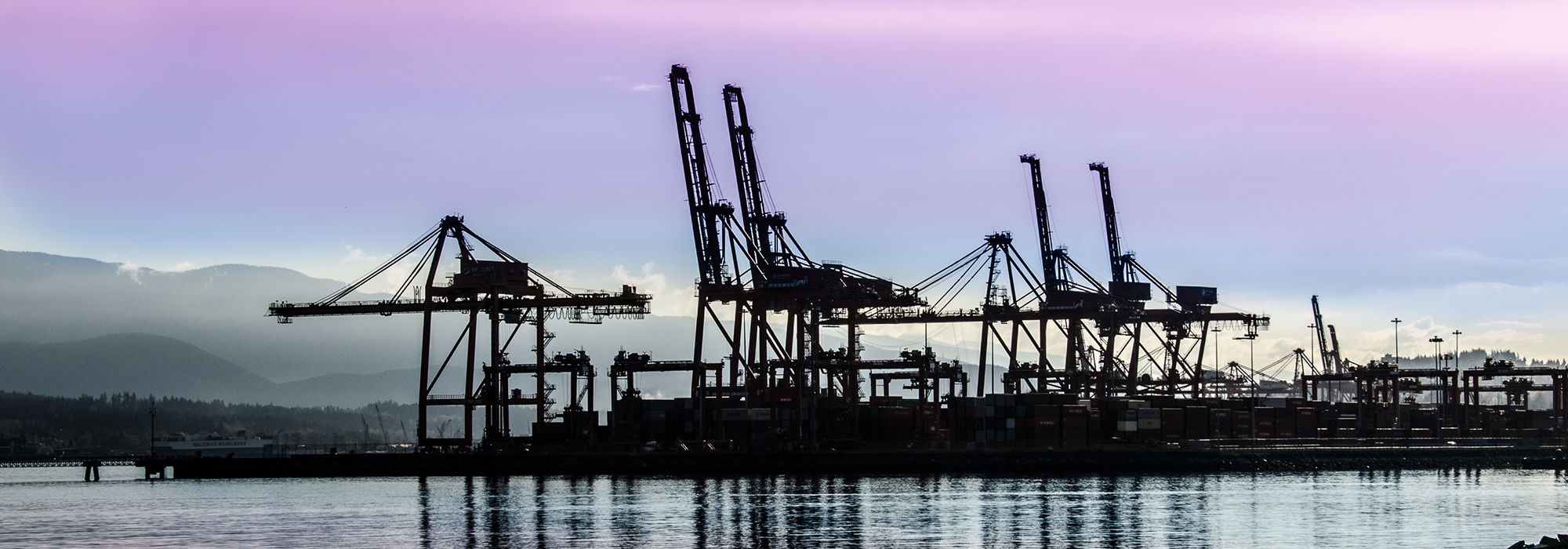
The loonie is languishing, oil prices are in the tank, and the federal government is under pressure to prove its fiscal plan will create jobs and improve the economic optimism of Canadians.
In this new economic context, the signing of the Trans-Pacific Partnership could suddenly be seen by Canadians in a different light. Twelve countries that line the Pacific Rim signed the trade deal in February, but it still needs to be ratified by each nation.
Broadly, one could make the argument that people in this country see themselves as belonging to a trading nation. Indeed, the government of the day sees itself as pro-trade.
Sentiment didn’t always skew that way though. Think about the fraught debate over the Canada-US Free Trade Agreement that dominated the mid-to-late 1980s. Or the skepticism a few years later when the North American Free Trade Agreement – this time including Mexico – was on the table. At the time, Angus Reid asked Canadians about that deal. Two decades later, we asked about the Canada-EU Trade Agreement (CETA, still to be ratified in Europe). Figure 1 below shows how Canadians felt about those two trade pacts, in 1993 and in 2014.
Figure 1. Canadians on free trade agreements, 1993 and 2014.
And here we are now, on the precipice of another trade deal — the Trans-Pacific Partnership (TPP) — that finds that the proportion of Canadians saying they don’t know enough about it to render an opinion is higher than that of people who support or oppose the agreement (figure 2).
Figure 2. Support for joining the Trans-Pacific Partnership, April 2015-January 2016.
Awareness of the TPP increased – albeit only slightly – during the last election campaign. Will opinions harden now that Canada has actually put its signature to the deal? It has certainly put the issue back on the radar. But will current economic realities change existing views?
Take for example, the fact that in a recent poll on the topic, people in this country saw the deal having a significant positive impact on consumer choices (figure 3).
Figure 3. Do you think the TPP will have a positive impact, a negative impact, or no impact, on consumer choices?
But with the value of the Canadian dollar some 30 percent lower against the US dollar than it was three years ago, and with people appearing to be hoarding their cash, will economic anxiety squash any enthusiasm to shop for newly available – and presumably cheaper – imports?
And then there’s the TPP’s perceived impact on the economy. Canadians with an opinion have been similarly upbeat about prospects on that front, with more saying the deal will be a net positive on our financial system (figure 4).
Figure 4. Do you think the TPP will have a positive impact, a negative impact, or no impact, on the Canadian economy?
On this front, a lower dollar may go some way to boosting the manufacturing and export economy – which may, in turn, benefit from less red tape and freer access to international markets. Time will tell. The bigger question remains, what will signing – and ultimately ratifying – the TPP do to employment in this country? Canadians already have some concerns (figure 5).
Figure 5. Do you think the TPP will have a positive impact, a negative impact, or no impact, on employment and jobs in your area?
As is evident in figure 5, employment is the only area where the people polled were more likely to see the trade agreement as a net negative. And it’s here that Justin Trudeau’s government will have to walk a fine line. On one hand, it seems unlikely that Canada will walk away from the agreement. After all, even if there are clauses countries don’t like about the deal, are they really going to risk being left out of the club?
On the other hand, sluggish national job growth in 2015, combined with the undeniable unemployment crisis in oil-dependent Alberta and fears the TPP will result in the shedding of tens of thousands of manufacturing jobs (fears that are also being dismissed), all mean Trudeau will have to play therapist-in-chief to uneasy Canadians.











